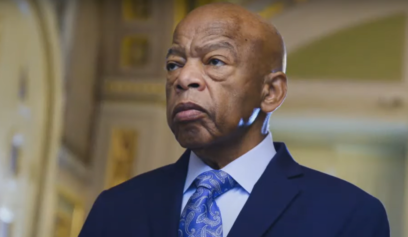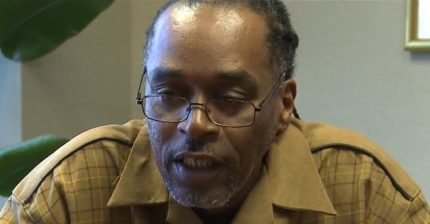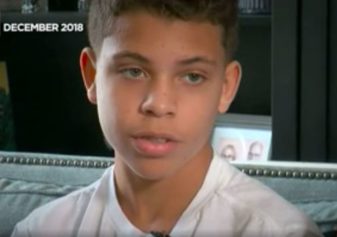An African-American pastor’s support for same-sex marriage costs him his congregation.
Twenty-two years ago, Reverend Oliver White founded Grace Community United Church of Christ in a low-income black neighborhood of St. Paul, Minnesota. It was a strong congregation with 320 members — until 2005, when White stood up at a synod of the United Church of Christ and voiced his support of gay marriage. Then he came home and told his congregation what he had done.
“I thought they were with me,” he says, “but much to my chagrin, I immediately started losing members.” Over the next few weeks, two thirds of his members left the congregation.
This month, the church may close its doors altogether. White is currently struggling to raise $200,000 to pay back a loan on the church building by June 30. Even if the money comes through, there’s no guarantee that he will ever fill his pews again. But White, who once marched with the Civil Rights movement, remains adamant in his support of gay marriage. He spoke to me about his views on the subject and the deeper reasons the issue has met with so much resistance from the black church.
Tell me what’s happening at your church right now.
I’m trying to raise enough money to save our building from foreclosure. But the building itself is not the big issue. It’s become a symbol for a much larger fight. This is really about the gay community having a victory of sorts, letting the world know it can’t beat us. When I say “us” — I don’t happen to be gay. But I support the gay community with all my heart.
How did you become such a strong supporter of gay marriage?
You know, I’ve always felt this way. This is not something I’ve evolved into. I’ve always just felt that people are people. There are all kinds of different people — some are left handed, and others are right handed. Should we discriminate against people because they’re left handed?
That’s how I see it. Many of my friends happen to be gay, and some of my enemies, too. They all deserve the same rights I have in terms of being married, and the joys and benefits come along with that. I would not be inclined to be in relationship with another man, but it’s not for me to judge two men or women in a relationship. It’s about the freedom to love.
The people who left your congregation obviously believe that gay marriage is against the Christian religion. Which parts of scripture do they cite, and how do you read those same passages?
Most people who oppose homosexuality use biblical references found in Leviticus, which state that homosexuality is an abomination to God. Now, that’s a misinterpretation of that text. They really need to read further into it. In the same book of Leviticus, it states that if an unmarried woman is not a virgin, she can be put to death. We don’t put women to death for that reason nowadays.
The one law I quote frequently and try to conduct my ministry by is the one that Jesus gave: Love God first and then love your neighbor as yourself. And yet, we have laws in Minnesota in 2012 that say oral sex is a sin. You can go to jail for it. Come on people, wake up! Let’s get on with it!
What do your congregants say when you tell them that?
People are very selective about what they want to believe. And unfortunately, people do follow pastors who haven’t read enough. I tell people that Jesus did a whole lot of things that were contrary to laws that people seem to want to follow today. For example, on the Sabbath day, Jesus did a little healing. That got him in trouble. Jesus hung out with women, and many were prostitutes. That got him in trouble, too. But people have these preconceived views that won’t go away.
I’m not going to say that they’re dead wrong. My mother, bless her heart, had some ideas that were contrary to mine. I don’t think she would have disagreed on the issue of gays and lesbians. My niece happens to be a lesbian, and she and her partner lived with my mother. But there are plenty of other issues where my mother would disagree with me.
For instance, I try as hard as I can never to use patriarchal language. You’ll never hear me say “Father God” or “He healed me.” We should try not to give God a gender, because of this fact: If you ask a black child what God looks like, the child will say, “Like a white man.” Why? They’ve been brainwashed by what they see and hear around them. I try to let people know that God is much bigger than gender or skin color or any label that comes from our finite little minds.
There’s been a lot of talk in the news lately about “the black church.” What is the black church, and what makes it unique?
I love the black church. My own church is appreciatively, authentically, and unapologetically black. The black church nurtured me, and it was responsible in and of itself for the Civil Rights movement, for Martin Luther King. Many of our great entertainers came out of the black church.
Would it be fair to say that religion tends to play a more central role for African Americans than it does for society at large?
I might have to disagree with you a little bit on that. Obviously, African Americans are still a minority in this country. The last time I checked, the population was around 40 million. Religion is as much of a guiding force, if not more, for many, many Euro Americans. But proportionately speaking, religion may be more pronounced in the African American community.
I’m thinking of the entertainers you just mentioned. It seems fairly common for black musicians to mention God or to talk about being blessed. You don’t see that as often with white musicians, unless they’re in specific genres like country or Christian rock.
There is a prevailing tradition in the African American church that makes us more inclined to be extroverted with our religion. So you will hear a lot of African Americans say things like, “Have a blessed day.” Quite frankly, if someone tells me that, I’m somewhat taken aback by it. They state it out of habit — it’s a courtesy. They do it without thinking. But for my own part, I try not to wear my religion on my sleeve.
For example, there are schools in my community that are predominately African American, and you see people disregarding the laws that separate church and state. The first thing the teachers do when they arrive is turn on gospel radio. Then they take their Bibles out and put them on their desks. Here’s how I do it: I wear a cross around my neck, just like many, many, many African Americans. But the only time I take it out and show it is on a Sunday morning — when it’s appropriate in a church setting, with people who are like me. If I were to wear it when I was just walking around, it might offend somebody.
Even when African Americans are openly religious, I think there’s a perception that they tend to be liberals. That’s why the backlash against gay marriage has caught so many people by surprise.
In many ways, African Americans were the original conservatives. The majority of us live below the poverty line, so we have to be able to take a small piece of meat and turn into a meal for six. We’ve been doing it for years. At my church, too, we’ve always had to conserve — robbing Peter to pay Paul and borrowing from John to pay Matthew.
However, there are black ministers who continue to be conservative in the wrong ways. The majority of black churches practice “don’t ask, don’t tell” policies, saying, “We love gays and we love lesbians, but we hate the sin they’re committing.” They say this even when they know there are gays and lesbians sitting right there in their pews and singing in their choirs. If you’re black and gay, you’ll keep going to that church anyway because it’s part of your culture. But the church keeps pushing them into the closet.
What’s your response to that argument of “hate the sin and love the sinner”?
I say that being gay is a fundamental part of who people are. Psychologists who once said that gay people could be “converted” have come forward and apologized. It’s understood now that people are just born differently. They should not be despised for it.
These ministers are the same ones who tell me, “Oliver, this is not a civil rights issue like we went through 50 years ago.” But it is a civil rights issue! When you stand up and preach against the gays and lesbians, that’s discrimination. It’s pure and simple to me.
Do you think Obama’s support of gay marriage is really going to make a difference in whether black people turn out for him at the polls?
That’s a sad truth. Some influential ministers are telling their congregations to vote for Romney, who opposes almost everything else the black community supports. But not many will. They’ll vote Democratic — if they vote. But I do think a lot of them won’t vote at all this time.
That’s why I really appreciate what the president did. He took a real risk. I’ve actually written him a letter, telling him I’d like to go to Washington and shake his hand. Of course, he hasn’t answered — and I don’t blame him. If he invited me to Washington, it would really exacerbate the issue.
Even if you meet your fund-raising goal, you’re going to have to struggle to build up your congregation again. Have you thought about moving to a new area where more people might share your views?
No, because that would be the antithesis of what it means to be a follower of Jesus. Jesus could certainly have played it safe. But that’s not what he did — he challenged the rules, even when it made him unpopular with the Pharisees.
Besides, this community needs our church. We have young people here who can’t read or write. We have single women who can’t feed their families and are turning to prostitution. There are drugs being sold right across the street from our church. Our main goal should be reaching out to the community — and that’s what we will be focusing on once this fund-raising effort is over.
You mentioned Martin Luther King. If he were alive today, what do you think his stance on gay marriage would be?
I believe that in his heart, he would support it. But as far as his church was concerned, he would not risk saying that because it would divide him from his people. And I guess I can understand why more ministers don’t want to divide their flocks. Just look at what happened to me!
But this is how I’ve always been. Growing up, I was the first one to climb to the highest part of tree — and fall out. I’m always the first one to jump in the water, even if I can’t swim. But I’m still in the water. And I think many more will follow.
Source: Theatlantic.com


